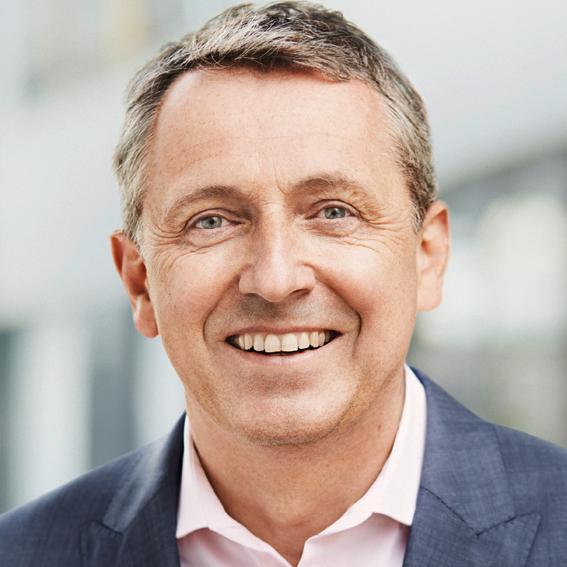
Steven Shorrock
@StevenShorrock
Followers
7,399
Following
708
Media
4,112
Statuses
48,876
Psychologist & transdisciplinary humanistic, systems & design practitioner. Complexity, work, safety, justice, autism. #ActuallyAutistic CPsychol CErgHF PhD
🏴 🇫🇷 🇪🇺 🐝
Joined September 2010
Don't wanna be here?
Send us removal request.
Explore trending content on Musk Viewer
Liz Cheney
• 923369 Tweets
الهلال
• 534494 Tweets
Diddy
• 361518 Tweets
Christmas
• 232957 Tweets
Tinubu
• 110924 Tweets
Hugh Hewitt
• 71170 Tweets
#NMA2024
• 36448 Tweets
القحطاني
• 32119 Tweets
جيسوس
• 30682 Tweets
رونالدو
• 30387 Tweets
#BBUK
• 28138 Tweets
ناصر
• 25924 Tweets
تاليسكا
• 25677 Tweets
Dean
• 25650 Tweets
#NRJmusicawards
• 24899 Tweets
مالكوم
• 24854 Tweets
Nathan
• 23444 Tweets
Monaco
• 22395 Tweets
سافيتش
• 21640 Tweets
Snoop Dogg
• 19491 Tweets
Leverkusen
• 15677 Tweets
البليهي
• 15095 Tweets
Dimite
• 14828 Tweets
الشوط الاول
• 12818 Tweets
Gyokeres
• 11518 Tweets
الشوط الثاني
• 10971 Tweets
Indi
• 10826 Tweets
نيفيز
• 10454 Tweets
Times Square
• 10399 Tweets
Last Seen Profiles
@booksandwine76
@AlexMorrish
My daughter did something even better...
8y/o: What does ‘greatest’ mean?
Me: Biggest
8: Oh, then I need to change my answer on the last page
Me: Why?
8: I thought it meant favourite or best.
Her rationale: You have more years left to live.
21
108
1K
@EylonALevy
Not knowing how to feed you kids is haunting. Kids with autism and learning disabilities being tortured in state hospitals is haunting. This is the face of someone who has not achieved her ambitions, but will nevertheless love a privileged, comfortable life. It won't haunt anyone
2
49
728
Chinese couple do seemingly impossible acrobatic ballet after English bloke tries to stick tea spoons to his nose.
#BritainsGotTalent
8
193
605
@AndrewRosindell
Britain is Back...at the bottom of the G7 growth table!
Blue passports to the rescue!
9
64
363
HOW COMPLEX SYSTEMS FAIL
Richard I. Cook’s
@ri_cook
classic treatise on the nature of failure, how failure is evaluated, how failure is attributed to proximate cause, and the resulting new understanding of safety. In the 🆕
#HindSightMagazine
Issue 31
10
115
280
@SteveHiltonx
The establishment literally tried to force this through, on the third attempt. The Eton establishment tried to crow bar this through, inc. Johnson and Rees-Mogg. Stick to American populism, Steve.
0
16
247
And here is the problem. Culture is not a lever. You can't manipulate it. You can't design it. It can be influenced, but it is much easier to influence badly by intervention. Work on the work with the people who do the work and are affected by it. Culture change comes for free.
What’s the single most important influence on patient safety? Not money, not regulation. It is culture.
#ImperialPSTRC2018
inspirational talk by
@didoharding
@ImperialNHS
@NHSImprovement
@NHSEngland
7
134
208
17
119
234
Incredible skill. Now imagine that a terrible accident resulted from being just a few inches closer. Then how would we evaluate the pilot's performance? Success & disaster can be inches apart but we often don't recognise this, and our judgement of performance is based on outcome.
16
73
224
This is why you always start with understanding work-as-done, not work-as-imagined. The only ‘Plan’ you should start with is a plan to understand the work, including the people who do it, the tools they use and the contexts they work within.
#ergonomics
6
50
132
Last year I bought this book. Like Danny, I had PTSD in my teens and 20s and really had no idea. It returned in my mid 40, unresolved. I just knew the symptoms. Flashbacks (emotional & visual), fight/flight/freeze, free floating anxiety, depression, nightmares, on edge, tics. 1/
2
19
103
For
#WorldPatientSafetyDay
a few ideas, drawing also on other industries:
1. Evaluate staffing impacts. It's hard to truly improve patient safety when so understaffed. If frontline staff are fully occupied with frontline tasks, they can't properly support patient safety work.
2
44
90
@drleighannjones
@GidMK
Boost just means improve or increase, so if one has a deficiency (eg zinc, vitamin D) then one can boost immunity by supplementation. So technically it’s not true, but it depends on the person. Plenty of research on zinc and vitamin D to back this up.
2
3
89
The slide deck to my talk today at
#HSJpatientsafety
can be downloaded at The various vignettes that I briefly described, and many more, can be read at and the linked posts
6
36
86
Finally got round to printing this.
Accidents & incidents:
obvious internally and
externally, investigated in
depth
#SafetyII
1/
5
20
82
Tomorrow is Sunday. If not at work, for your mental health, I invite you to join me in not reading stuff concerning
#COVID19
.
Instead:
Read a novel 📚
Listen to music 🎶
Watch a film 📺
Play games ♟🕹
Walk in nature 🌳
Exercise 🏃♂️
Bake cakes 🧁
Phone loved ones 👵
5
21
83
Naive, nonsensical, ill informed.
‘Human error’ is not:
1. a category of behaviour
2. a binary to be contrasted against equipment
3. a cause
‘Human error’ is:
1. hard to define unambiguously a priori
2. inextricably linked to context
3. a zombie concept
3
47
83
@MattHancock
"Lynn, take a photo of me looking pensive to distract people from my failing career"
@AccidentalP
#AccidentalPartridge
2
1
74
Here are the five
@icao
Human Performance Principles
The
@icao
Manual on Human Performance (Doc 10151) is out now.
It’s aimed at regulators but Part 1 and much of Part 2 is widely applicable, covering systems thinking, design thinking, and human performance principles, then going onto safety regulation implications.
2
18
38
4
23
78
Why I didn't put my hand up when
@Kevin_Fong
asked us if commercial aviation was safest form of transport. Very much depends on your metric. Question nobody ask is, how do bus drivers keep people so safe?
#HSJPatientSafety
9
47
80
@shell_ki
A female runner friend says this happens pretty much every time she runs in different parts of (mostly southern) England (many, many times) but never yet in Scotland (having also run many, many times).
10
1
77
A few concepts for the curious in system safety:
Interaction
Local rationality
Trade-offs & compromises
Patterns
Work-as-imagined, -prescribed, -done, -disclosed
Adaptation & adjustment
Drift
First & second stories
Field expertise
Emergence
Equivalence
3
47
78
Panic buying of soap is a Tragedy of the Commons - counterproductive individualism & short-termism. If others can’t wash their hands,
#coronavirus
doesn’t care that you’ve got two dozen bars of soap in the garage. You’re more at risk. Give them to others.
#COVID2019
#coronavirus
3
27
77
There are no Safety-II professionals, but there are professionals who look beyond accidents and incidents and take a broader perspective on the work, and think about systems more holistically. A shift in perspective, but one that is severely challenged by regulatory demands.
7
23
76
Well done
@Google
engineers getting services back online after the outage. The behind the scenes action will be impossible to imagine for almost everybody.
5
15
77
Systems degrade in unpredicted ways such that the system-as-found is not as-imagined.
One thing I won’t ever do again is build a snow dalek. I did that when we lived at our old house as the kids were into Dr Who. I learnt that when snowdaleks start to melt they upset the neighbours
#snowman
#snowdalek
#drwho
2K
25K
94K
1
24
76
In memory of a great man. His legacy and love will never be forgotton.
HOW COMPLEX SYSTEMS FAIL
Richard I. Cook’s
@ri_cook
classic treatise on the nature of failure, how failure is evaluated, how failure is attributed to proximate cause, and the resulting new understanding of safety. In the 🆕
#HindSightMagazine
Issue 31
10
115
280
5
29
76
You know what France did when people started gathering on beaches (in far fewer numbers, in May, with death rates lower than UK in late June)?
They closed them.
And fines were issued.
You can’t rely on individual ‘common sense’ to ensure physical distancing in this context.
7
25
71
@jbfunk
@NathanJRobinson
@SamWangPhD
Whether one is a socialist or a neolibertarian, does it change the facts? No, it’s irrelevant, except as a device to deny history.
0
0
66
@rob_england
I don’t believe in root causes (obv) but if I were to pick one at the centre of so many problems - including accidents - it would be pressure.
1
1
69
The
#DrPhilipLee
@gmcuk
debacle shows how being a member of a professional association can mean that you can’t express yourself as a human being - lawfully - in a way that others can. The defined boundaries for expression diminish citizenship and personhood.
5
17
70
Targets don't work. They are not magic. They don't increase capacity or improve flow. To do that you have to work on the work and the system conditions.
UK A&E 4hr wait trends. Seasonal variations aside, England and Wales settled into new, higher levels, over the last few years. No country hitting targets.
@NuffieldTrust
@JessieSMorris
6
17
15
8
47
71
Imagine writing this at 16...
Wigan has produced another class band in
@TheLathums
(buy the if you like it and you can)
1
2
68
@MattHancock
Don't forget the basics. Staffing. Basic equipment. Capacity. Facilities. Treatment of the most vulnerable in social care facilities. Don't let tech dazzle and gloss over the fundamentals.
2
5
64
Rhetoric about ‘safety first’ always collides with reality when you see no CEOs at safety conferences.
#HSJPatientSafety
#SafetyFourth
10
13
65
You can’t “provide” or “assure”psychological safety. It’s a feeling which is highly personal, emerging from the interpersonal. One may feel “safe” and not be safe, or feel “unsafe” with imagined threats. It risks becoming another rainbow chasing exercise.
#HSJPatientSafety
8
26
66
Work Design
➡️Understand work-as-done
➡️Involve others in work-as-imagined
➡️Co-design prototype work-as-prescribed
➡️Implement in WAD
➡️Check against WAI & WAP
➡️Iterate until
#WAIWAD
gap acceptable
➡️Monitor relationships between WAD, WAI and WAP
➡️Repeat
3
31
65


















































































